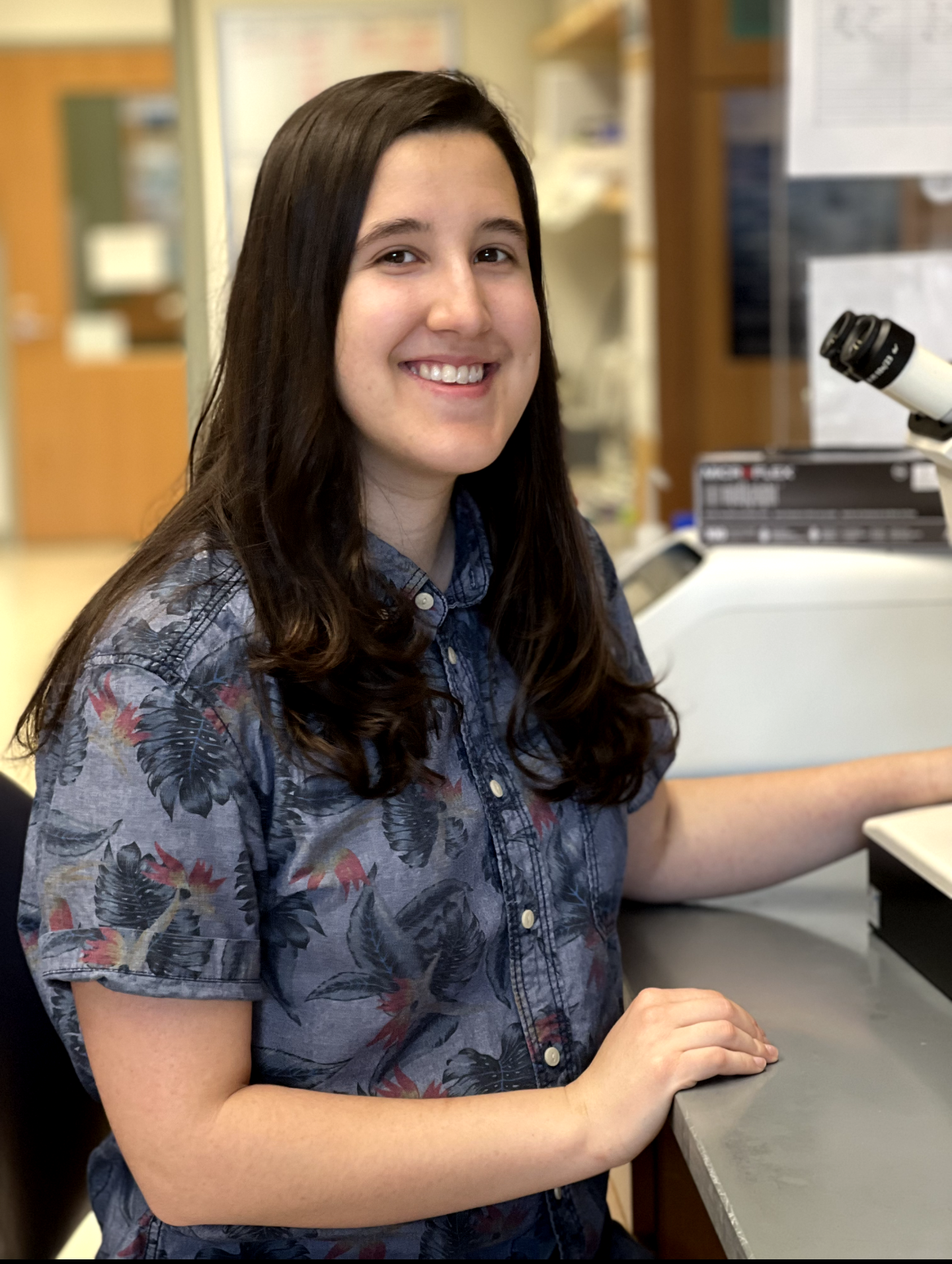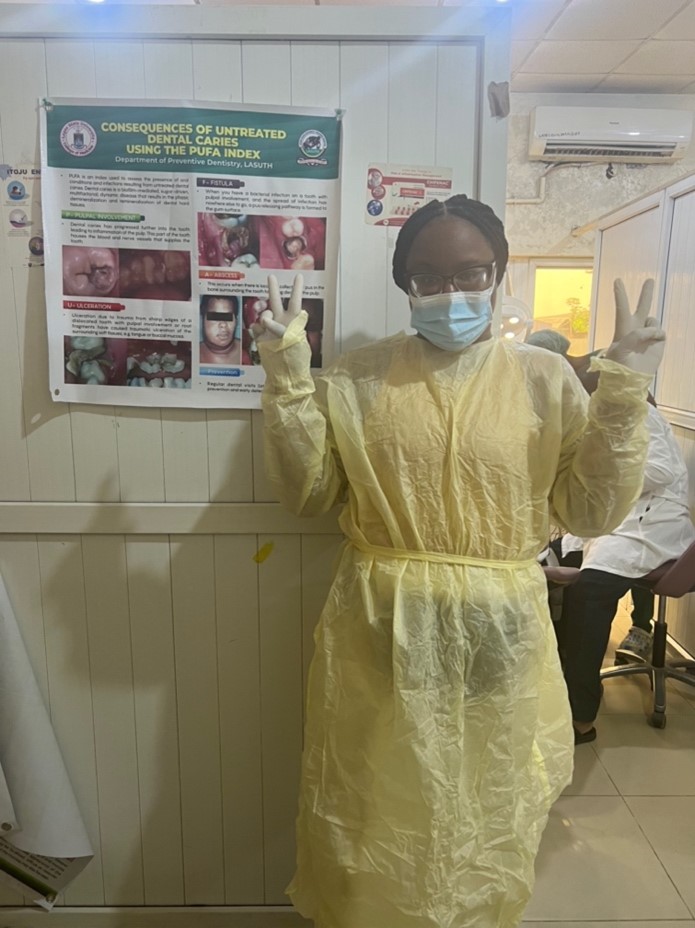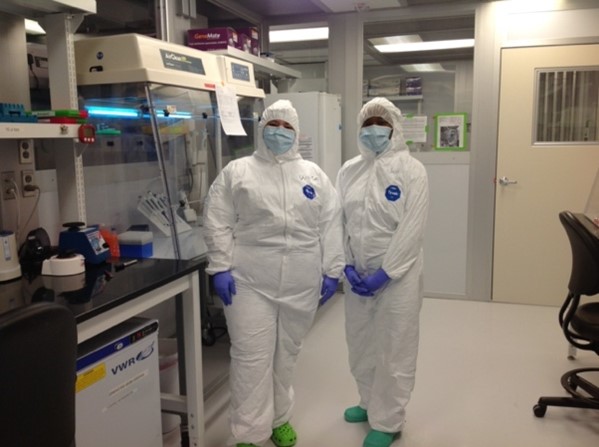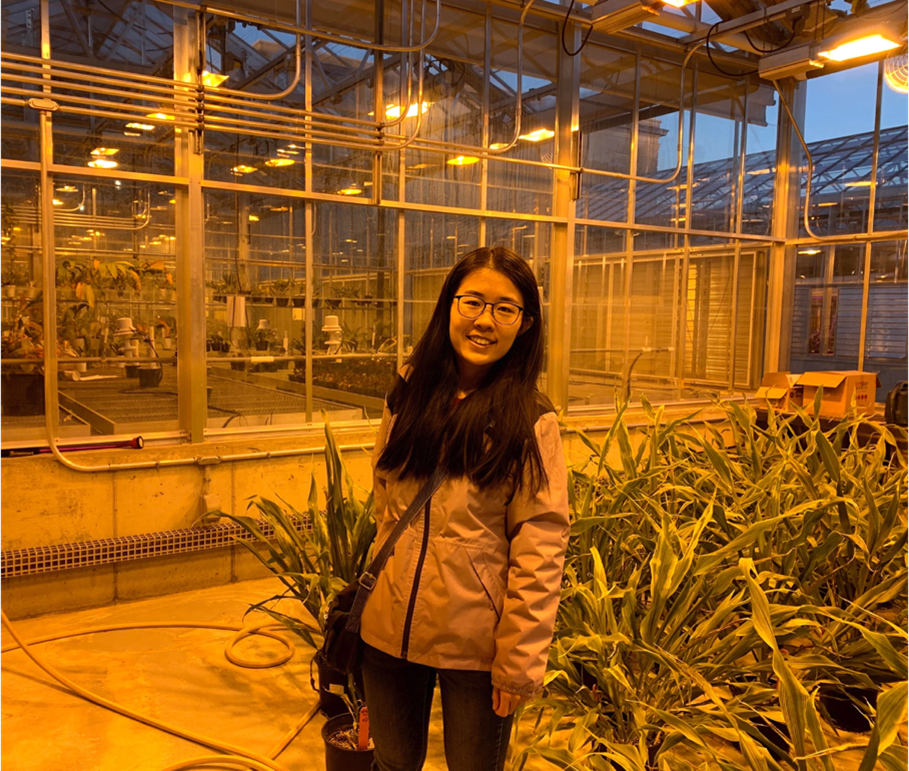Evolutionary Studies pilot grant recipients reflect on last year’s research
By Kelly Tingle, Evolutionary Studies communications assistant
Last year (2022-2023), Evolutionary Studies at Vanderbilt awarded pilot grants to excellent proposals from four members of the ESI community: graduate students Samantha Schaffner (Biological Sciences, Patel Lab), Taiye Winful (Anthropology, Benn Torres Lab), and Katie McCormack (Anthropology, Benn Torres Lab) and Earth and Environmental Sciences Professor Lin Meng, who is collaborating with Biological Sciences Professor Carl Johnson. Pilot Research Grants are awarded to ESI members with proposals for evolution-themed projects–especially trainee led projects–and awards may be up to $5000.

Sam Schaffner studied the effects of gene mutation within the nematode Caenorhabditis elegans.
“The Evolutionary Studies pilot grant has been extremely beneficial in beginning my research project. It allowed me to take risks in my research and study a possible toxin-antidote system in C. elegans related to my gene of interest, spd-3” explained Schaffner.
Schaffner was able to use her pilot grant proposal as an early draft of an NSF GRFP proposal, for which she was also awarded funding this year. With her GRFP, Schaffner is working to better understand the function and evolutionary pressures of essential gene loss in some Caenorhabditis species.

Taiye Winful collected data on chronic stress and biological inflammatory response mechanisms in Nigerians.
“The pilot grant especially has given me the ability to focus and perfect my methods before analyzing my Nigerian samples,” described Winful.
Winful was awarded an NSF Doctoral Dissertation Improvement Grant to continue this research. Winful explained that these funding opportunities have enabled her to better understand how life experiences affect biological systems in African American and Nigerian populations.
Katie McCormack studied ancient microbiomes within calcified dental plaque of individuals from the archaeological site of La Real in Peru.

“Funding from the ESI pilot grant has been really instrumental in allowing for training and generating pilot data for my dissertation research,” said McCormack. “It’s really exciting to be a part of work that can both provide new insights to the lived experiences of people who lived over a millennium ago and potentially contribute to our understandings of how microbes that colonize the human oral cavity have co-evolved with human populations over time.”
Earth and Environmental Sciences Professor Lin Meng and Biological Sciences Professor Carl Johnson studied the effects of artificial light at night (ALAN) on plants through experiments.

Meng is interested in how climate change and urbanization affects urban ecosystems.
“By understanding the evolutionary processes underlying the responses of urban trees to environmental stressors, we can gain insights into their resilience and develop strategies for their conservation and management in the face of ongoing climate change,” explained Meng.
Meng, who just finished her first year as faculty in EES, explained that the Evolution group has provided a supportive environment and opportunity to make connections and collaborations across campus on research projects and grant writing. She also described that ESI’s various funding opportunities enhance the community’s ability to conduct high-quality research, increase academic visibility, and prepare members for application to larger grants.
Successful pilot grants, with awards up to $5000, consist of strong proposals that promote new evolutionary scholarship, develop collaborations across career stages and disciplines, and seed larger projects. Pilot grant recipients are encouraged to regularly attend ESI seminars and journal clubs, which this year’s awardees found extremely valuable.
Pilot grant awardees note that Evolutionary Studies journal club provides sense of community.
“Friday journal discussions always have a diverse range of topics, academic stages, and scientific backgrounds of participants,” described Schaffner.
McCormack added, “I really value the journal club and other opportunities to engage with evolutionary biology a bit more broadly and have that shared experience of reading and discussing papers with people that come from diverse academic backgrounds.”
Winful added that she’s looking forward to attending more of these events next year now that she has returned from field work.
This year (2023-2024), ESI was able to award Pilot Research Grants to 11 members of the community: Neil Kelley, Brandt Eichman, Gianni Castiglione, Lantana Grub (Patel Lab), Hao Yin (Meng Lab), Jamisha Francis (Hadjifrangiskou Lab), Jay Pardo (DeSantis Lab), Kate Snyder (Creanza Lab), Alejandro Prieto (Darroch / Jorge Lab) Owen Hale (Behringer Lab), Marina Watowich (Lea Lab).
Pilot Research Grants for 2024-2025 are due in May of 2024.